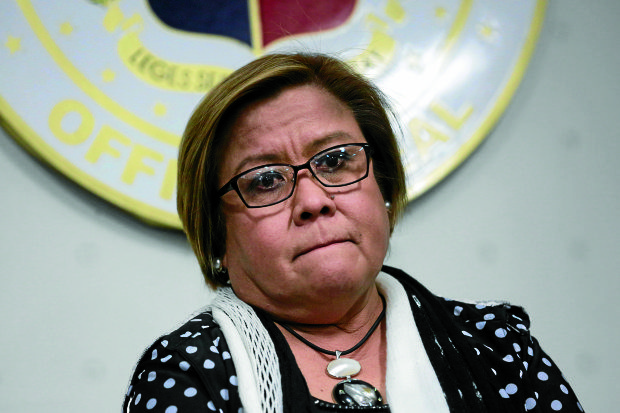A Supreme Court Associate Justice said he is bothered by the manifestation made by government lawyers that Senator Leila De Lima falsified a “jurat” in her petition.
“I am bothered by the manifestation of the Solicitor General regarding the non-compliance by petitioner of the required verification…I am bothered because this is a serious breach of Rule 65 [of the Rules of Court],” Associate Justice Presbitero Velasco said.
Rule 65 requires that the petition to be filed should be verified.
The Jurat, on the other hand, is an act in which an individual appears in person before the notary public and presents an instrument or document. Said person, who must be personally known to the notary public or identified by the notary public through competent evidence of identity, signs the instrument or document in the presence of the notary and takes an oath or affirmation before the notary public as to such instrument or document.
This issue was raised in the second round of the oral arguments as De Lima’s lawyers denied the allegation by Solicitor General Jose Calida that she violated the rule requiring her to personally sign on the petition before the notary public.
Calida said it is impossible for De Lima to swear on her petition as there is no evidence that the notary public, Atty. Maria Cecille Tresvalles-Cabalo, visited the senator in Camp Crame.
In response, De Lima’s counsels led by former solicitor general Florin Hilbay said the allegation was “false.”
Hilbay told the high tribunal that Atty. Cabalo met De Lima at the Criminal Investigation and Detection Group headquarters in Camp Crame last Feb. 24 where the senator signed the petition.
But Velasco pointed out that records from the Philippine National Police submitted by the office of the solicitor general showed that no Atty. Cabalo visited De Lima on that day.
Hilbay said Cabalo met De Lima not at the PNP Custodial Center but at the PNP-Criminal Investigation and Detection Group (PNP-CIDG) prior to her detention.
